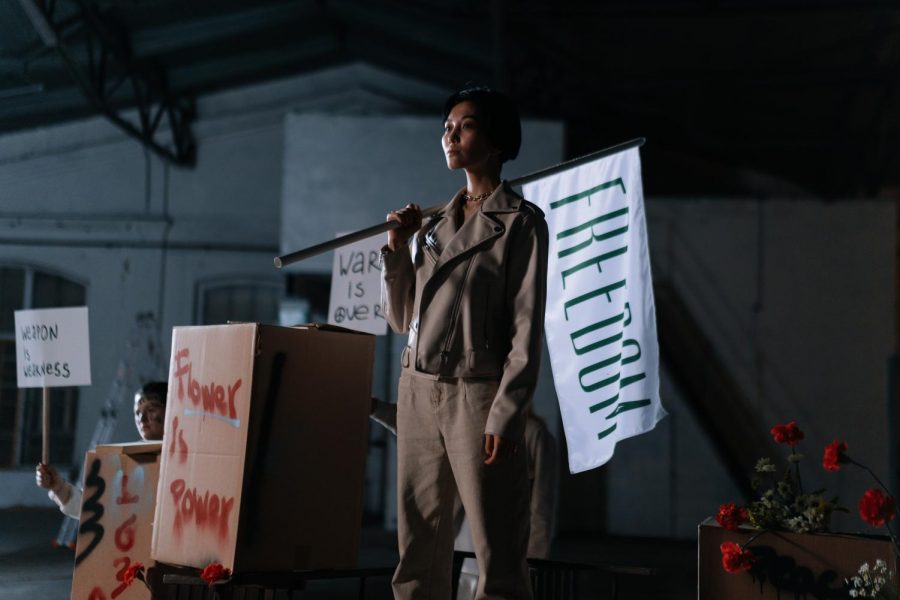Sarah Everard and the Global Women’s Safety Movement
April 17, 2021
Like many during the past year, Sarah Everard had begun 2021 recovering from a series of hardships– a long-term relationship had crumbled, and she had lost her job during the midst of the pandemic. Still, things were looking up. Ms. Everard had begun a new romantic relationship, becoming, as her friends described her, a steady rock for others to rely on during the rough and uncertain waves of a pandemic-era adult life. This delicate yet happy reality came crashing down on Wednesday, March 3, when Everard unexpectedly disappeared into the night.
Sarah Everard was last seen alive on a blurry CCTV footage, on the phone with her boyfriend, confirming plans to meet the following day. However, Everard never came home that night, and news of her disappearance soon reached far beyond her small circle of family and friends. Calls for her rescue grew louder each passing day, and for her family, anxiety soon turned to grief as a police officer was arrested in connection to her disappearance five days after she first vanished. A day later, on March 10, her remains were found in a builder’s bag in a Kent woodland southeast of London.
Rapidly, outrage over Ms. Everard’s death erupted across the United Kingdom and the world. Candlelight vigils were held across the nation (often met by harsh police response), and several high-profile UK government officials released statements condemning Ms. Everard’s kidnapping and subsequent murder. Many were quick to point out that this widespread public response was a sign that the #MeToo movement that had extended across the world a few years earlier was still very much alive. As co-head of the PDS chapter of the National Organization for Women (N.O.W), Junior Mehak Dhaliwal notes, “Sarah Everard’s tragic death is a terrifying realization that even in the developed world, in South London, even in an urban park in a relatively affluent area, even as a white female in an occupation of good standing, there is no way she could dress, no path she could take, to fix the twisted mentality of other people.”
Globally, cases like Ms. Everard’s are common. Sarah Everard’s murder becoming a global headline is a sign, for many, that real action must be taken in order to ensure the safety of women and provide a better fallback system in case prevention does not succeed. As co-head of N.O.W, Senior Nazareth Mehreteab shares, “We must work to combat all forms of gender-based violence and inequity.” Whether this work comes into effect as quickly as UK officials and global authorities claim it will remain to be seen.








